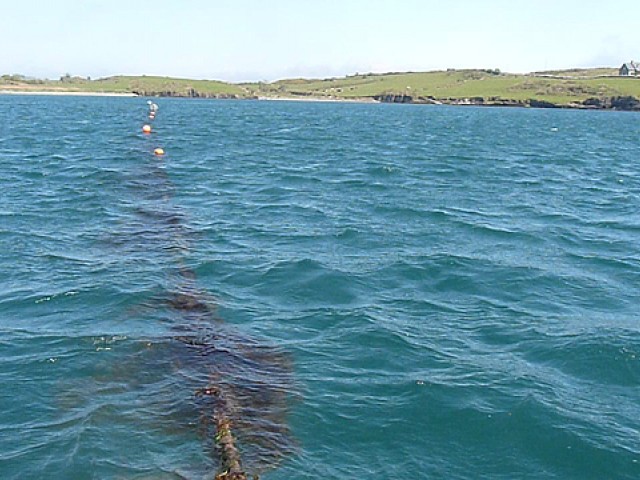The West coast of Ireland is blessed with clean Atlantic water, thanks in no small part to NGO’s like Greenpeace that fought the British government in a hard won campaign to stop nuclear waste dumping in the deep ocean bed during the 1980’s.
The prevalent scientific opinion at the time was that in the ocean depths it would lie undisturbed for the millennia it takes for its half life to expire. We now know that there is a circulation between the surface and the abyss and how the ocean regulates life on earth and the atmosphere. The primeval soup of minerals and yet unknown compounds that is our living ocean is like the soil is to terrestrial plants, and the sea vegetables we grow are only as clean as the sea.
Thirty years later this rich source of nutrition that has been a well kept secret in coastal communities is being unlocked and coming under scrutiny as a potential super-food. Unlike agriculture which depends on an increasingly scarce source of fresh water to feed planet Earth’s burgeoning population, sea vegetables only need sunlight and clean sea water, abundant on the verdant continental shelves.
The seaweed forests are as important as the great forests on land in absorbing CO2 and home to intricate eco systems which support a hierarchy of marine life. Now we are seeking validation from the authorities that our sea vegetables are safe, full of trace minerals and homeopathic quantities of heavy metals that naturally exist in the sea and may also have a function in regulating our systems. It is possible to overdose on sea vegetables particularly the kelps rich in iodine and it should be used sparingly and it is necessary to listen to ones own body which knows when it has had enough of a good thing.
The Roaring Water bay seaweed farm where we grow brown seaweed species on long lines was the first of its kind in Ireland and a pioneer in the development of seaweed farming techniques. Seaweed farming has a beneficial effect on the underwater environment providing shelter for fish and other organisms. Moreover shellfish and seaweed farms help to absorb the detritus of fish farms and the future of aquaculture may be a ‘permaculture’ approach to farming the sea.
Table of Analysis of Roaring Water bay Seaweeds for heavy metals.

